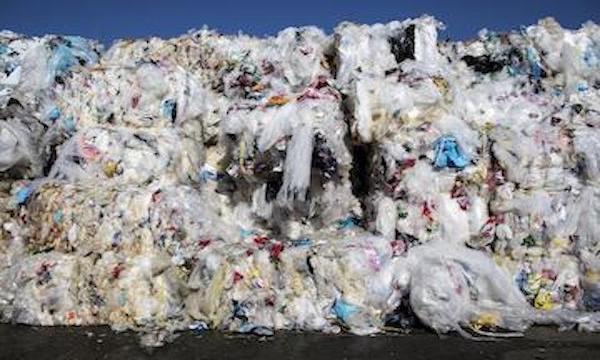
SWISS DIGITAL PLATFORM WANTS TO TRACE GLOBAL PLASTIC WASTE
FLORENT HIARD
Environmental Action (EA), a Geneva-based research consultancy, on Wednesday launched a digital database that aims to monitor the management of plastic waste around the world.
The new platform, called Plasteax , wants to make everyone's responsibilities in terms of plastic pollution transparent.
Why it matters. Although widely visible, especially in the oceans , plastic pollution is difficult to quantify. Between the level of collection and recycling in the different countries and the international flows of rubbish, it is difficult to identify the weak points in waste management or to take action to prevent the latter from ending up in nature. What’s more, current international commitments, if they are kept, will only reduce plastic pollution. by seven per cent by 2040 , making the need to track plastic through its life cycle all the more urgent.
Ultimately, the goal is to offer a working tool to NGOs, governments and industries wishing, among other things, to assess the effectiveness of measures taken and the progress of the fight against plastic pollution. Sarah Perreard, co-founder of Plasteax, said:
“International agreements tackling major environmental problems such as greenhouse gas emissions or CFCs have needed international agreements that require solid databases to refer to in order to report on progress made.
This is what is still missing for plastic pollution and we hope that Plasteax will contribute to this mission.”
Methodology. The EA project, in collaboration with the International Union for the Conservation of Nature (IUCN) and the United Nations Environment Program (UNEP), consists of compiling and standardising the information available on the international trade of plastic products and waste, production within each country, data on the collection of plastic waste, as well as the recycling and storage of this waste. It includes data for each type of polymer (PET, PVC, polyester, etc.).
The result is a detailed report on the footprint of each country and for each type of plastic, as well as an index (MWI) on mismanaged waste. This takes into account waste that is not collected and is insufficiently disposed of, for example in an unsanitary landfill where leaks are frequent. While Switzerland, for example, ranks fairly on the MWI, with a score around one per cent, data from Plasteax shows that 900 tonnes of plastic end up in nature there.
Transparency under construction. The fact remains that the compilation of this information has a cost. Data for some countries was obtained thanks to funding from certain governments, NGOs, or private sector actors. But the budgets obtained do not yet cover all the investments that are necessary to access and develop all the data needed, according to the founders of Plasteax. In fact, a large majority of the nations of the world have only general data.
In addition, access to detailed data for certain countries, for which the costs have not yet been fully covered, remain chargeable. This is notably the case for the United States, the European Union, China and Switzerland. This data will become free once the investment is compensated.
Finally, certain sources of plastic pollution are not yet taken into account in this first version of Plasteax, such as microplastics and the direct discharge of waste into the environment (the latter being still difficult to quantify). Julien Boucher, co-founder of Plasteax, said:
“We plan to add the litter dimension to Plasteax soon. We are working with several partners to develop the model, generate actionable data and integrate it into the platform.”

